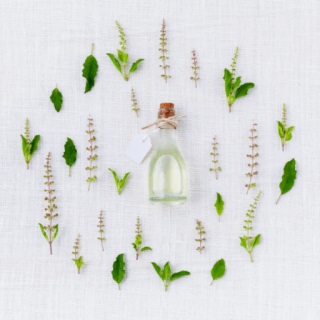
Nutraceutical
Trends
Nutraceutical
Trends
Year after year, the attraction of consumers for natural products is growing. Food, cosmetics, health, nothing escapes it! The nutraceutical market, at the crossroads of these three worlds is also evolving in this direction. To respond to this trend of natural well-being, plants are an obvious choice. For centuries, plants have been used in traditional medicine and especially phytotherapy. Let's see how the world of dietary supplements is inspired by them to make the most of the benefits of plants.
Despite the constant development and progress of conventional medicine, alternative medicine, also known as "alternative medicine" or "natural medicine" has retained an important place in our modern societies. They are used both in a preventive and curative approach. Moreover, they are sometimes used as the only tools for access to well-being, sometimes as complementary to conventional medicine. For example, in France, 15% of cancer patients use phytonutrients in capsules as a support to their therapeutic treatment[1].
Alternative medicines are now legally grouped under the name "Non-Conventional Health Care Practices" (NCHP)[2]. Even though they are not officially recognized by traditional medicine, they have many followers. Alternative medicine groups together very diverse practices such as osteopathy, hypnosis, homeopathy, sophrology or even phytotherapy.
The phytotherapy is the treatment or prevention of diseases through the use of plants[3]. It is therefore part of alternative medicine, used for millennia. Indeed, we find mentions of phytotherapy in writings from Ancient Greece and the Middle Ages[1] It is based on the use of plant products obtained by extraction and then diluted (drops, syrups, lyophilisats...). This extraction process allows to obtain active ingredients in high or even very high concentrations, and thus to gain in effectiveness.
Within herbal medicine, there are 3 distinct disciplines:
The use of plants, inspired by phytotherapy, represents today the future of nutraceuticals. Indeed, plants now represent 40% of the market for dietary supplements[4], and are also the leading contributors to market growth thanks to the 93% growth they generate[5]. Perceived as natural and reassuring, plants have a good image among consumers: 84% of French people think that phytotherapy is good for their health[6]. Consumed mostly in a preventive approach, plant-based dietary supplements meet 3 main promises: the stress & sleep, the digestion and the immunity.
A l’heure actuelle, les troubles du sommeil liés au stress sont de plus en plus fréquents. De nombreuses plantes possèdent des propriétés apaisantes pouvant aider à la gestion de ces troubles du sommeil. Notre extrait de coriandre contenant du linalool, une molécule reconnue pour ses propriétés anxiolytiques et sédatives. Nous proposons également un extrait de fleur femelle de houblon. Cet ingrédient renferme des actifs permettent de soulager les symptômes liés au stress mental et de favoriser le sommeil.
Les problèmes intestinaux sont considérés comme l’un des principaux troubles du 21e siècle. Mauvaise alimentation et stress sont deux des facteurs incriminés dans l’apparition de ces symptômes. Les plantes ont toutefois démontré des effets bénéfiques sur la digestion et l’appareil digestif. Notre extrait de camomille permet de limiter l’inflammation intestinale et de promouvoir le bien-être digestif grâce à ses effets antioxydants.
Finally, the COVID-19 crisis has brought the central role of our immune system back into focus. Many herbal extracts can be used to boost the immune response, as can our ingredients: